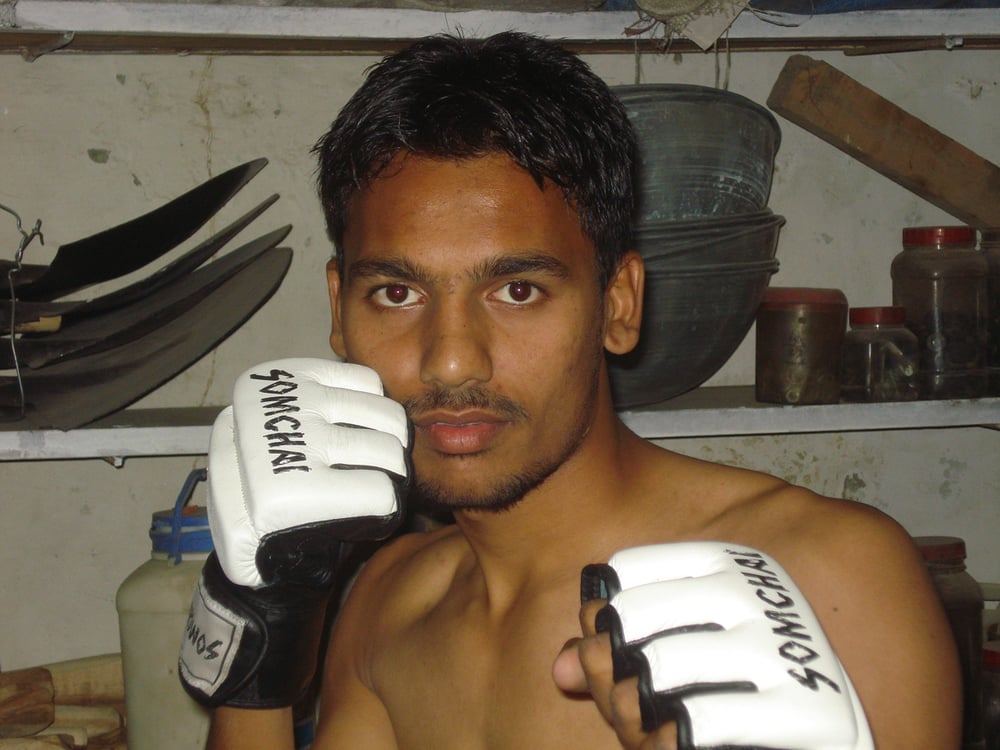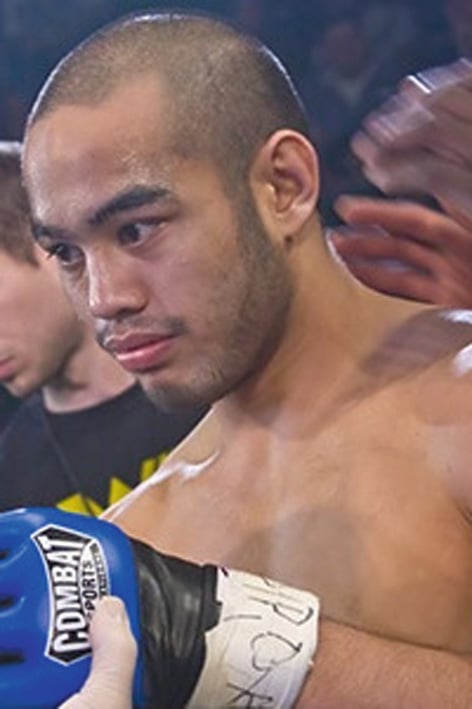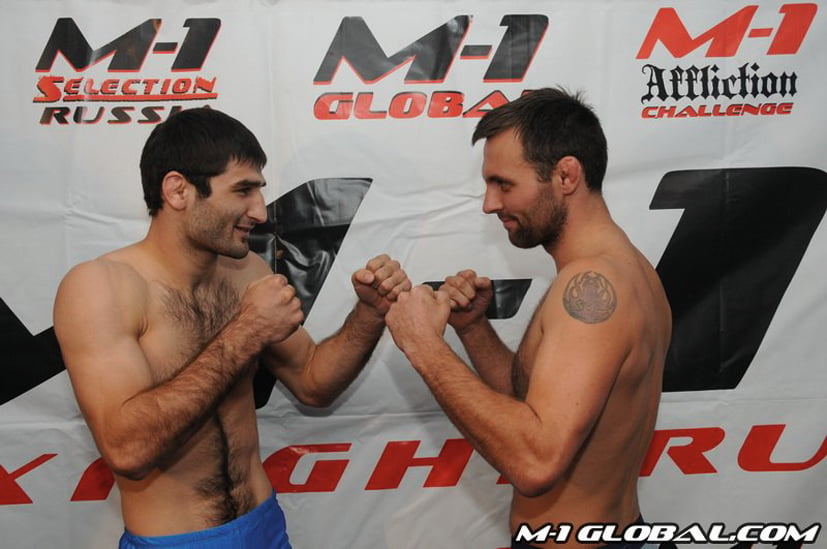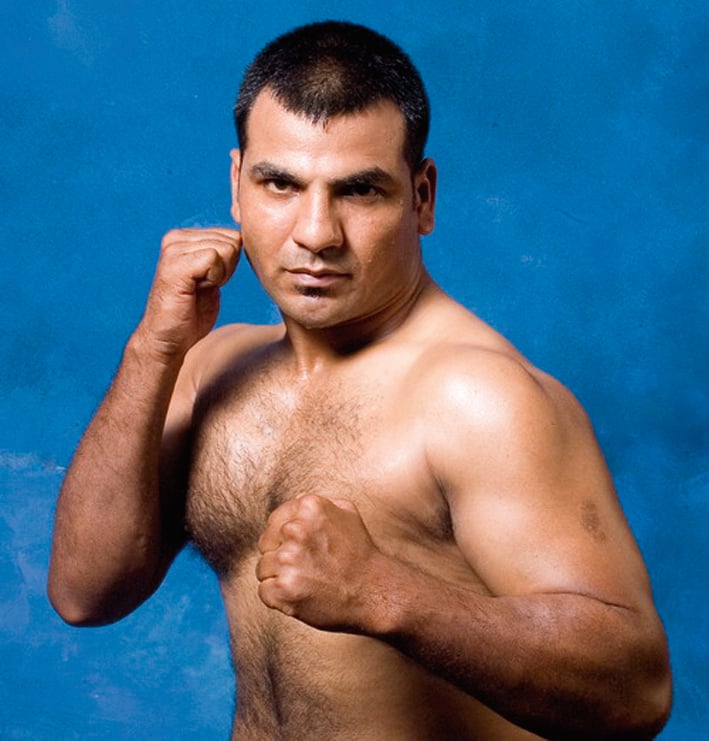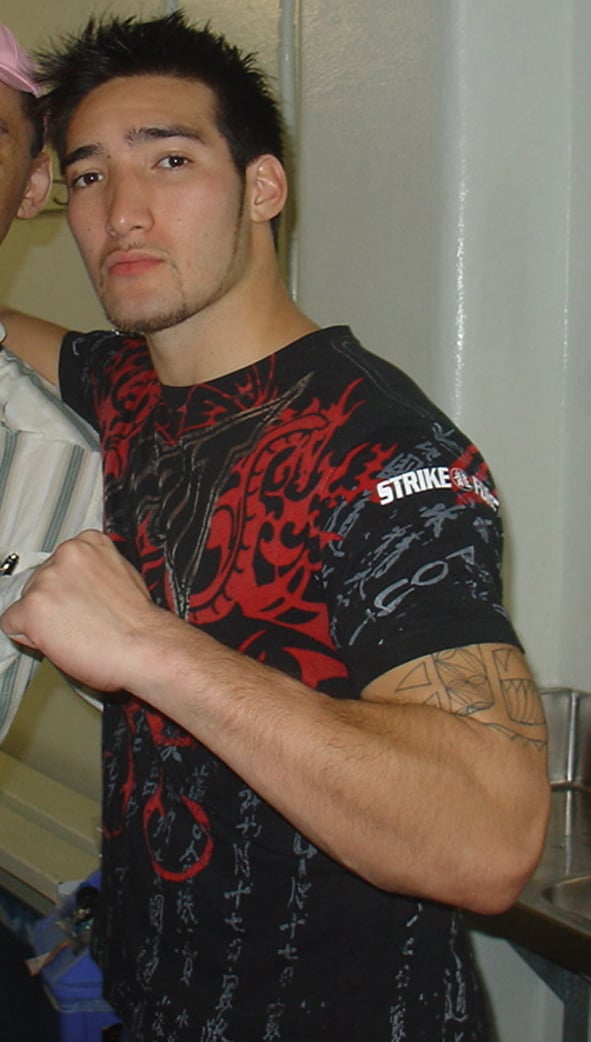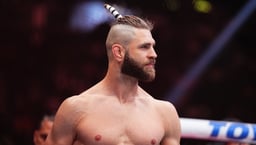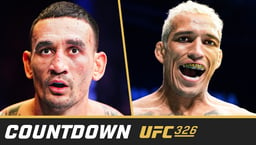
Issue 067
November 2010
MMA’s exploding in the most exotic – and surprising – of places. FO captures the birth throes of Earth’s first truly global sport.
As Dana White once said: “I take two guys and put them in an Octagon and they can use any martial art they want – that transcends all culture barriers.” And from the Asian subcontinent to the Pacific islands, from cradles of the sport such as Thailand to sports-mad South Africa, he’s being proved correct. We present the most exotic – and enthusiastic – countries embracing mixed martial arts.
Pakistan
Location: Subcontinental Asia
Population Density (per square mile): 546
Despite its reputation for orthodoxy, Pakistan’s provided little opposition to a sport that some western detractors still consider barbaric.
“We have gotten none of the human cockfighting stuff,” explains Lahore-based Bashir Ahmad, who runs Pakistan’s only MMA gym and sole promotion Pakistan Warrior Challenge. “We’ve had super-conservative types with the big beards and turbans watch our events and then immediately come and ask if they can get on the card and fight as well.” Despite the interest, MMA in Pakistan is still in its infancy. Bashir, who has a background in krav maga, Brazilian jiu-jitsu and Muay Thai, says: “At this point the events are similar to UFC 1, with the whole ‘style versus style’ set up. Pakistan has not seen the evolution of MMA and so it is necessary to follow some of the stages MMA has gone through overseas... People here are stuck in the ‘80s when it comes to martial arts. Chuck Norris, ninjas and death touches are still alive and well in the martial arts scene here.”
MMA is very much a niche, underground sport in Pakistan, a nation slotted in between India and Afghanistan. Pakistan’s largest city, Karachi, is the sole receiver of televised MMA while fans elsewhere make do with Internet news sites or downloading video of events. Pakistan is a country with real problems, however. Due to electricity shortages Bashir often conducts training classes by gas lantern, and poverty within Lahore means children begging on the street are commonplace. Wanting to help, Bashir decided to give those children MMA lessons instead of money.
“I have about six street kids starting to train MMA as well as learn their ABCs. My gym notice board not only has the schedule but a big alphabet chart for the kids to learn with.”
The issue of security is omnipresent in Pakistan. Terrorism presents a significant threat and the scream of fighter jets passing overhead toward Indian airspace is standard. As a result, the military forms much of Pakistan’s identity. Bashir’s seeking to channel that angst into MMA. So much so that it’s incorporated in the gym logo – crossed guns with boxing gloves over the crescent and star of the nation’s flag. Bashir explains: “I wanted that image to draw in the individuals and youths most at risk and most wanting to vent their anger. ‘Don’t like India? Screw joining a militant group, put on a pair of gloves and win glory for your country that way.’”
Rising talent from Pakistan
Waqqar Ahmad
Although Pakistan’s young MMA scene means that some of Waqqar’s fight experience came against lesser opposition, the ease with which he’s dispatched them suggests a strong future.
Guam
Location: The Pacific
Population Density (per square mile): 839
“What soccer is to Brazil, that’s what fighting is to Guam,” affirms Joe Duarte, TUF alumnus and Guam’s most successful mixed martial artist.
A 209 square-mile island located in the Pacific Ocean, nationally Guam shares a similar mentality to fighting as the base of many great mixed martial artists. “On Guam, if you can scrap, people respect you. The same goes for Hawaii,” says Joe.
Being a territory of the US, Guam enjoys all the same MMA-carrying television channels as on mainland America, despite actually being closer to the Philippines. Combined with the welcoming attitude toward fighting, there’s no issue with social acceptance. “Not only is it accepted, it’s encouraged,” confirms Joe. “It gives young kids hope and allows them to fight legally if that’s what they chose to do. It provides entertainment, gives people jobs and most of all it gives us islanders a reason to do what we love to do.” Local events such as Rites of Passage are covered by native news outlets, and there’s even been an Enson Inoue-owned Purebred Gym on the island since as early as 1999. Though some successful fighters are unheard of in their home countries, Joe receives great support: an indicator of the strength of the sport in Guam. “Every time I fight I feel like I’m representing my culture, heritage and my island,” says Joe. “To be honest, all I ever wanted to do was make it to inspire other people from Guam and show them they can do anything if they want it bad enough.”
Rising talent from Guam
Frank Camacho
Having only gone to decision once, fans are always likely to get a show with ‘The Crank’. Seven TKO victories inside the first round suggest they’ll see his hand raised early.
South Africa
Location: Southern tip of Africa
Population Density (per square mile): 104
There are some areas of the world where even MMA’s behemoth organization, the UFC, fails to fully take hold. South Africa may be one of them. But although the country, perched at the base of the African continent, receives no UFC programming or pay-per-views, the sport’s still managed to explode.
While MMA fans across the world have become hooked by watching the fighting styles of favorites such as Wanderlei Silva, Randy Couture and Chuck Liddell, in South Africa it’s home-grown fighters such as Darren Daniel, Chris Bright and Adam Speechly from top promotion EFC Africa wielding the star power.
“EFC Africa is all that the average person knows about MMA,” confirms Cairo Howarth, the director of the promotion launched late 2009. “We promote our fighters extensively: putting them on billboards on freeways, plus on radio and TV interviews. The process has made them into celebrities.” Africa’s top sports channel, SuperSport, shows an hour-long EFC program every week highlighting three fights and pulling in ratings of around 150,000 people. Broadband speeds in the country are slow, so fans of international MMA don’t even have the option of downloading events and instead often make do with YouTube clips. For this reason EFC Africa’s shows, which draw nearly 6,000 spectators compared to around 1,500 that typically attend a boxing show, have ensnared a strong fan base. Cairo Howarth states: “South Africans love contact sports like rugby so although MMA is relatively new to mainstream South Africa it’s caught on rapidly. It still has a lot of catching up to do when compared to rugby, soccer, cricket and cycling, but at its current pace it’ll soon be recognized as one of the major participated-in and watched sports.”
Before MMA’s recent boom as a result of EFC Africa’s exposure, however, some South African fighters made it overseas. Trevor Prangley and Neil Grove have both fought in the UFC. Jan ‘The Giant’ Nortje has fought MMA as well as K-1. With EFC Africa now highlighting MMA to the sport-mad populace of South Africa, expect that list to expand.
Rising talent from South Africa
Darren Daniel
Having fought both pro Muay Thai and san shou bouts, and competed in China’s Art of War promotion, this middleweight is slowly becoming a star in his home country.
Siberia
Location: Northeast corner of the former Soviet Union
Population Density (per square kilometer): 4
The Russian Far East is noted for its freezing temperatures – and prisons. But even an area where during January the average daily high is -12C cannot escape the lure of mixed martial arts.
Organizations such as Siberian Challenge and IAFC (Absolute Fighting Championship) have all held MMA events in the cities of the harsh terrain. Khabarovsk houses Draka, a federation that holds ‘mix-fight’ events that are nearly identical to MMA. Due to the country’s strong sporting history, a large number of the fighters who compete in events such as Siberian Challenge and Draka are from sambo, boxing or wrestling backgrounds. Oleg Butakov, communications director for Draka, says: “Traditional combat sports have government support, and child sports groups where future professionals start their career. Many Russian professional fighters have passed through that route and achieved success.” Oleg confirms that due to Russia’s accomplishments in traditional combat sports, mixed martial arts draws Russians of varying ages and social backgrounds with very little evidence of the sport being frowned upon. Oleg states: “Professional fighters are really very popular and without question, I can say that professional fighting has great respect in Russia.”
Rising talent from Siberia
Magomed Shikshabekov
Winning all fights by stoppage makes this Russian welterweight’s unbeaten record one to note. That they’ve come from both striking and submissions suggests a fearsomely well-rounded prospect.
Thailand
Location: Southeast Asia
Population Density (per square mile): 324
Though it has a rich heritage in Muay Thai, currently one of the most popular disciplines within MMA, it’s surprising that Thailand and the country’s fight fanatics only faintly register the sport – so far.
Alex Berezovik, who runs the Bangkok Fight Club mixed martial arts gym, explains that despite low recognition the sport is growing slowly in the country.
“MMA still isn’t very popular in Thailand. Muay Thai takes the crown of the most popular and most watched fighting sport, followed by boxing, while traditional martial arts like taekwondo are popular among middle- and upper-class Thais.” Alex says MMA isn’t frowned upon nor has it encountered legality issues in Thailand simply because it goes unnoticed by sports officials. “Officially there’s no sanctioning body for the sport here in Thailand and it hasn’t been licensed. But we do have MMA training camps and facilities here and even hold smaller MMA events from time to time.” Indeed, despite popular gyms such as Tiger Muay Thai And Mixed Martial Arts holding seminars with personalities such as Royce Gracie and Elvis Sinosic, there still isn’t a premier organization in the country. Alex explains: “MMA is still very new here in Thailand but it is getting more widespread.” Considering the acutely skilled stand-up technicians Thailand must be harboring in its Muay Thai circuit, many will hope the country that’s already indirectly contributed so much to the sport soon becomes an MMA nation.
Rising talent from Thailand
Ngoo Ditty
Though Ditty’s even record may not look imposing, having over 150 Muay Thai fights and a 9-1 amateur MMA record suggest there’s promise in the 23-year-old.
India
Location: Subcontinental Asia
Population Density (per square mile): 930
“A lot of people didn’t know what to expect. Some thought that FCC would probably be some karate tournament,” says Prashant Kumar, the organizer of Full Contact Championships, one of India’s small MMA promotions.
“But after attending my shows, they were zapped out.” Running since January 2009, FCC’s found there’s limited awareness of MMA, but those who have been exposed have responded well says Prashant. In a nation that has little time for any sport other than cricket and no regular MMA television programming, FCC still manages to attract around 300 people per event. “Since I don’t have an advertising budget, promotions are done through word of mouth and SMS,” explains Prashant. Tigers’ MMA Academy, in Nashik, is the country’s top training facility and held the first event in India during 2004, Clash of the Champions, organized by the All India Combat Sports Federation. Since then the promotion has held further contests and estimates to have pulled in between 1,000 and 5,000 spectators.

The UFC seems keen on India as a possible location for a future event but Daniel Isaac, head trainer at Tigers’ MMA Academy, has some reservations. “If the UFC can pull off an event in India it’d be great. Of course there’d be some challenges and hurdles since India isn’t a fighting country and most Indians prefer Bollywood and cricket as a spectator sport rather than watching fights.” But Daniel adds: “In India, MMA still has a long way to go to compete with other sports, but when MMA does become mainstream here it will be ready to rival cricket – which is more religion than sport in India.” Prashant Kumar feels confident of a UFC event’s success in the country. “India is a country with the numbers. In a city like Mumbai this is something that the youth would really look forward to. In fact, MMA cuts across all age barriers, and could attract huge crowds and a great response in India.”
Rising talent from India
Alan Fenandes
‘The Bull’ has represented India in MMA and BJJ across the world and was the first fighter from the country to fight mixed martial arts abroad.
New Zealand
Location: Australasia
Population Density (per square mile): 41
“Coming back home to New Zealand after 14 years away was a bit of shock for me,” says Nyra Phillips, who runs NZMMA, an MMA retail shop and online portal for the sport in the country.
“After living in Hawaii for most of that time where MMA has such a high profile, MMA in New Zealand was almost non-existent – and that was in 2007. To put it into perspective, that was when the first MMA cage arrived in the country.”
Though geographically close to Australia, a recently targeted territory for the UFC, New Zealand is still laying the ground work for MMA, something that’s not helped by a fragmented attitude toward MMA training, Nyra says. “Gyms are still likely to offer stand-up and ground training rather than just MMA, and worse, most still prefer to protect their ‘territory’ by preferring that their fighters don’t cross-train with other gyms.” Furthermore, television coverage has been inconsistent. “UFC pay-per-views started in earnest in 2008 but K-1, Dream and Showtime got dropped. Forget about watching WEC, M-1 Global or any other pay-per-view. When The Ultimate Fighter season six came out, Sky re-ran season two and never got past season four. I still get people asking me, ‘Is UFC ever going to have another series?’”
However, testament to the grassroots popularity of MMA, there are a string of strong local events like ICNZ and Supremacy in Auckland that regularly draw around 500 people. Furthermore over 1,000 people attend Punishment in Dunedin and a recent kickboxing card in Auckland featured a headlining MMA fight with Japanese Olympic judoka, Satoshi Ishii.
Rising talent from New Zealand
Rod McSwain
Holding two domestic titles and being the head trainer at Strike Force gym in Auckland suggests that welterweight ‘Hot’ Rod McSwain has the ability to go far.
Hong Kong
Location: Southeast coast of China
Population Density (per square mile): 16,442
Being home to the late Bruce Lee (in essence the original mixed martial artist) combat arts are ingrained into the culture of Hong Kong. It’s something that is aiding the assimilation of MMA into the county’s culture says Michael Haskamp, one of the men behind Hong Kong’s Legend FC promotion.
“MMA’s a sport that’s quickly gaining popularity here. Hong Kong audiences had never been exposed to MMA via any mass-market medium before our first event.” Since it began, in early 2010 with a show in front of 1,500 people, Legend FC has received an overwhelmingly positive response. Michael says: “Hong Kong’s at such a cultural and economic crossroads that people here are constantly being exposed to new things – so they’re very open-minded and forward-thinking. In this regard, one thing we focus on is ensuring that people new to the sport see MMA for what it really is: highly skilled and disciplined athletes who compete primarily for love of the sport.”
MMA fans in Hong Kong have just recently been given the ability to watch the sport on cable television but watching the pay-per-view events in a group at a bar is common. “Because of the time difference, most events are shown early on Sunday mornings but that doesn’t stop people from dragging themselves out of bed and heading down to the pub with their friends for MMA over breakfast, even if they’ve had a huge Saturday night. It always draws a big crowd.”
Rising talent from Hong Kong
Kenny Yeung
A Hong Kong native who trains out of Australia, Yueng may have only just started his MMA career but his background in Muay Thai is likely to serve him well.



